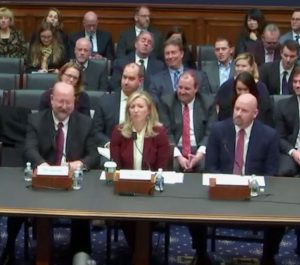 The Environmental Protection Agency (EPA) has released the finalized rule for required renewable fuel volumes under the Renewable Fuel Standard (RFS) program for 2019, and biomass-based diesel for 2020.
The Environmental Protection Agency (EPA) has released the finalized rule for required renewable fuel volumes under the Renewable Fuel Standard (RFS) program for 2019, and biomass-based diesel for 2020.
The key elements of the final rule include maintaining the “conventional” renewable fuel volumes, primarily met by corn ethanol, at the current 15-billion gallon level set by Congress for 2019; increasing advanced biofuel volumes for 2019 by 630 million gallons over the 2018 standard; increasing cellulosic biofuel volumes for 2019 by almost 130 million gallons over this year; and increasing biomass-based diesel volumes for 2020 by 330 million gallons over the standard for 2019.
However, the agency declined to take any action on reallocating Renewable Identification Numbers (RINS) to make up for small refinery hardship exemptions granted for RFS compliance in 2016 and 2017.
Growth Energy CEO Emily Skor says they are pleased to see the final numbers were released on time by the November 30 deadline. “But the latest EPA rule is also a missed opportunity to correctly account for billions of gallons of ethanol lost to refinery exemptions,” said Skor. “Until these are addressed properly, we’re still taking two steps back for every step forward.”
Listen to or download Skor’s reaction here: EPA RVO final reaction from Growth Energy CEO Emily Skor
Renewable Fuels Association President and CEO Geoff Cooper is hopeful that means EPA is not intending to issue any small refiner waivers at all in 2019. “We urge Acting Administrator Andrew Wheeler to faithfully and strictly enforce the 15-billion-gallon conventional renewable fuel requirement in 2019, rather than allowing the standard to be eroded through the use of clandestine small refiner waivers as former Administrator Pruitt did,” said Cooper.
Audio with Cooper here: EPA RVO final reaction from RFA CEO Geoff Cooper
American Coalition for Ethanol CEO Brian Jennings says not compensating for the gallons lost is causing real economic hardship for rural communities. “On paper, EPA appears to be resisting refiner demands to reduce conventional biofuel blending in 2019 below the statutory 15-billion-gallon level. However, in reality, as long as EPA fails to reallocate the over 2 billion gallons worth of blending obligations waived for ‘Small Refineries,’ renewable fuel demand will remain flat causing farmers and rural biofuel producers to continue suffering the consequences.”
Listen to Jennings’ comments here: EPA RVO final reaction from ACE CEO Brian Jennings
The National Biodiesel Board (NBB) criticized EPA for continuing to set the advanced biofuel and biomass-based diesel volumes lower than what the agency acknowledges will be produced. “The industry regularly fills 90 percent of the annual advanced biofuel requirement. Nevertheless, the agency continues to use its maximum waiver authority to set advanced biofuel requirements below attainable levels,” said NBB CEO Donnell Rehagen. “The method is inconsistent with the RFS program’s purpose, which is to drive growth in production and use of advanced biofuels such as biodiesel.”
Listen to Donnell’s comments here: EPA RVO final reaction from NBB CEO Donnell Rehagen
 “We think the farm bill’s in very good shape,” said President Trump as he sat down with Rep. Nancy Pelosi (D-CA) and Sen. Chuck Schumer (D-NY), just before getting into a spat with them over border wall funding. “That will be quite bipartisan and it will happen pretty soon.”
“We think the farm bill’s in very good shape,” said President Trump as he sat down with Rep. Nancy Pelosi (D-CA) and Sen. Chuck Schumer (D-NY), just before getting into a spat with them over border wall funding. “That will be quite bipartisan and it will happen pretty soon.” House Agriculture Committee Chairman Mike Conaway (TX-11) released a video yesterday highlighting the wins in the 2018 Farm Bill conference report for rural America and calling on his colleagues to pass the legislation.
House Agriculture Committee Chairman Mike Conaway (TX-11) released a video yesterday highlighting the wins in the 2018 Farm Bill conference report for rural America and calling on his colleagues to pass the legislation.













